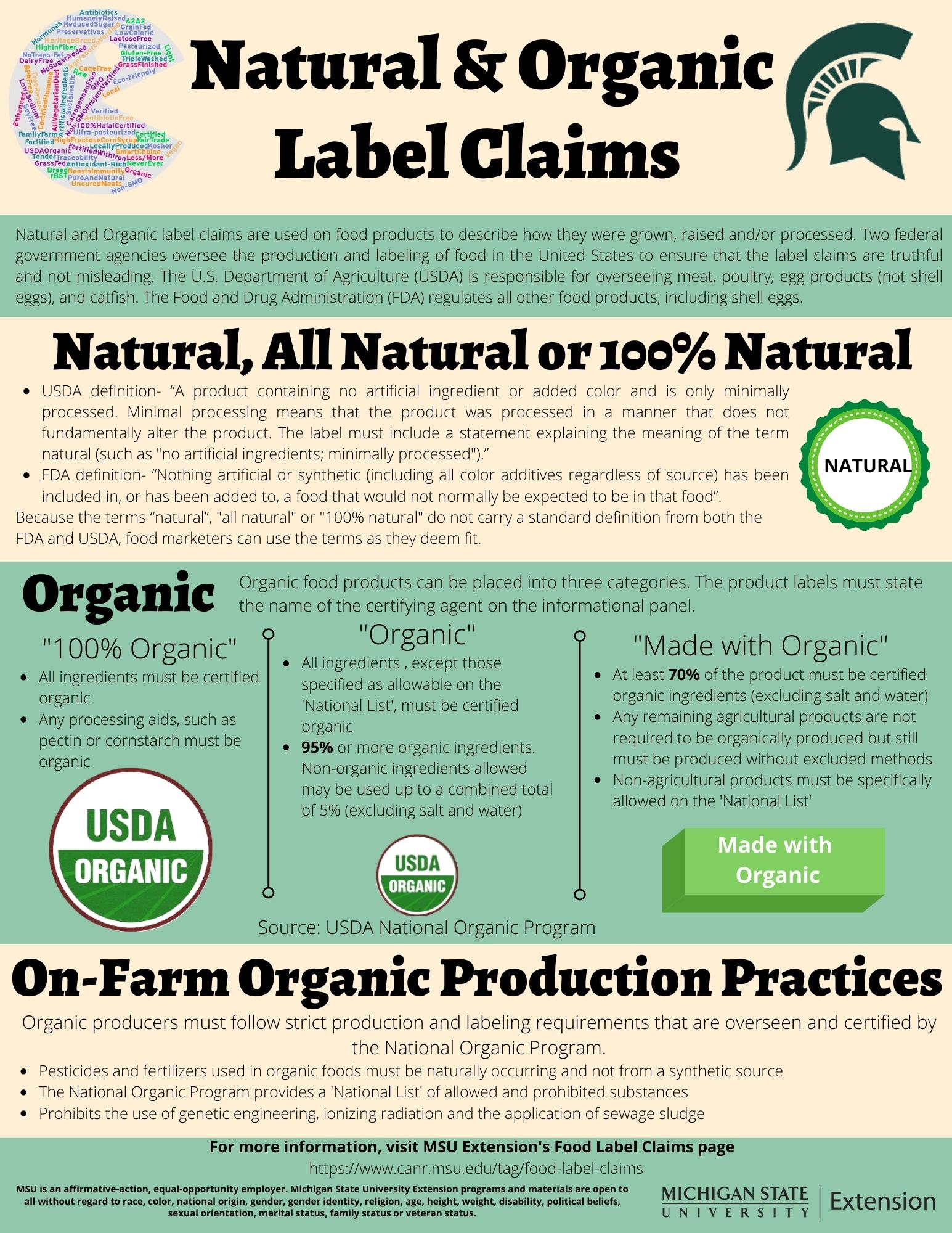Not surprisingly, the FDA’s leadership has had some real problems defining the term “natural.” While under pressure from big corporations, the FDA has not even defined the term at all for consumers. They’ve only given guidelines. Nevertheless, on every shelf, we still see bottles claiming “all-natural.” What does this truly mean? How are brands even claiming “natural” if the term’s definition doesn’t exist? Do brands really even know half of the time? The simple answer is no. It just sounds nice. The complicated answer is that natural can mean a multitude of things. It can mean some really good things, and it can mean some really not so good things. Here are some tips to consider when purchasing “natural” skincare products.
Natural means very little most of the time.

Coverphoto cred: MSU College of Agriculture and Natural Skincare
When companies say that a product is safer for you because it is natural or organic, a lot of the time they are just throwing these terms in the air hoping that people will choose their product over their competitors. For example, one company may say that glycerin is horrible, unclean, and bad for our skin. When in reality, glycerin is in our food, and it’s a wonderful humectant that retains the moisture in our skin. There’s actually nothing wrong with it! On the other hand, some companies will just go ahead and call an ingredient “natural” just because there is nothing problematic about it.
Sometimes Natural is Worse for Your Skin and The Environment.

Photocred: American Farm Bureau Foundation for Agriculture
Another truth about “natural” is that it’s actually worse for your skin and the environment sometimes. When mass producing natural ingredients, we should take the time to consider the amount of water that must be used for crops. We have to also consider the amount of plants we will then pick and extract from just to put in a bottle for skincare. This is a very labor-intensive process, and it takes up a lot of resources. Whereas, if we’re able to make those exact same molecules inside of a laboratory, we can actually do it with minimal water, minimal growing conditions, and have it done in a much more efficient way. A lot of companies say that natural processes are better than lab synthesis but avoid talking about if they are environmentally sustainable for mass production.
Take for example salicylic acid. This is a wonderful ingredient which helps with acne and blackheads, and it comes from the willow bark tree. This is also what’s in aspirin. When it’s taken from the willow bark tree, companies call it natural or organic. However, there is also a way to synthesize or lab create salicylic acid. Some companies tell consumers that if a product is made that way, it’s not natural and should not be bought. But the reality is, there is little difference, and lab synthesis can be the more sustainable and healthier option.
.
It’s the Molecule that Matters Most.
Moreover, it doesn’t really matter if the ingredient comes from a lab or a field because it’s the molecule that really matters. If you took one molecule from a field grown ingredient and one molecule from a lab synthesized ingredient, you wouldn’t be able to distinguish them. In fact, products are more likely to be stable when they are made in a lab. To explain further, consider growing apples one year with a lot of rain and sunshine as opposed to growing apples another year with little rain. Those two apples are going to be very different. This is the same situation with extracting natural ingredients from crops in skincare. Because of quality variation, it is very hard to duplicate effective skincare formulas when they are not lab synthesized.
Creating good skincare products is about stability and safety. Sometimes “natural” ingredients are hard to refine and can likewise cause irritation. Just the way we can have allergies to anything, we can have allergies to natural things and suffer from stinging and inflammation of the skin. So, the idea that all natural is safer for you might not be true. If something is being created in a lab, it’s able to be tested and evaluated for stability. It can also then be tested on people in scientific trials. This really helps boost a product's effectiveness.
But again, if someone wants to use natural products, that’s fine, but consumers should definitely be able to make educated decisions.
Bottom line, many marketers want to sell you anything.
The truth is that brands are going to keep pushing consumers to buy natural. Whether a product is natural or not, it’s always important to know the pros and cons of any product. Consumers have the right to make those decisions for themselves instead of being forced to hear companies yell about earthy packaging!
Coverphoto cred: Shuttershock

